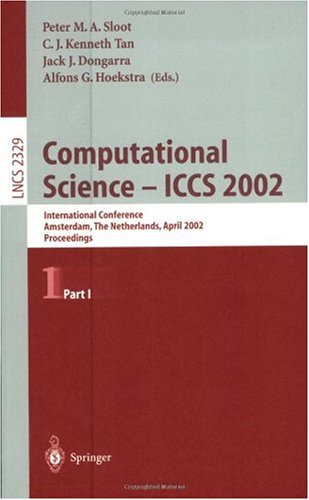

Most ebook files are in PDF format, so you can easily read them using various software such as Foxit Reader or directly on the Google Chrome browser.
Some ebook files are released by publishers in other formats such as .awz, .mobi, .epub, .fb2, etc. You may need to install specific software to read these formats on mobile/PC, such as Calibre.
Please read the tutorial at this link: https://ebookbell.com/faq
We offer FREE conversion to the popular formats you request; however, this may take some time. Therefore, right after payment, please email us, and we will try to provide the service as quickly as possible.
For some exceptional file formats or broken links (if any), please refrain from opening any disputes. Instead, email us first, and we will try to assist within a maximum of 6 hours.
EbookBell Team

4.1
20 reviewsComputational Science is the scienti?c discipline that aims at the development and understanding of new computational methods and techniques to model and simulate complex systems. The area of application includes natural systems – such as biology, envir- mental and geo-sciences, physics, and chemistry – and synthetic systems such as electronics and ?nancial and economic systems. The discipline is a bridge b- ween ‘classical’ computer science – logic, complexity, architecture, algorithms – mathematics, and the use of computers in the aforementioned areas. The relevance for society stems from the numerous challenges that exist in the various science and engineering disciplines, which can be tackled by advances made in this ?eld. For instance new models and methods to study environmental issues like the quality of air, water, and soil, and weather and climate predictions through simulations, as well as the simulation-supported development of cars, airplanes, and medical and transport systems etc. Paraphrasing R. Kenway (R.D. Kenway, Contemporary Physics. 1994): ‘There is an important message to scientists, politicians, and industrialists: in the future science, the best industrial design and manufacture, the greatest medical progress, and the most accurate environmental monitoring and forecasting will be done by countries that most rapidly exploit the full potential ofcomputational science’. Nowadays we have access to high-end computer architectures and a large range of computing environments, mainly as a consequence of the enormous s- mulus from the various international programs on advanced computing, e.g.